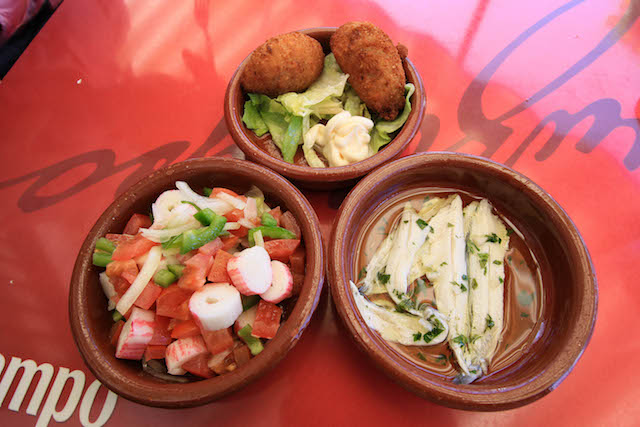In the realm of healthy eating, few dietary patterns have gained as much recognition as the Mediterranean diet. Renowned for its emphasis on fresh, nutrient-rich ingredients, the Mediterranean diet offers a plethora of health benefits. In this blog, we will embark on a culinary journey through southern Spain, a region that epitomizes the Mediterranean lifestyle, to explore the remarkable advantages of this delectable way of eating.
Heart Health
One of the most notable benefits of the Mediterranean diet is its positive impact on cardiovascular health. In southern Spain, where olive groves dot the landscape, olive oil takes center stage as a staple ingredient. Rich in monounsaturated fats, antioxidants, and anti-inflammatory properties, olive oil helps reduce bad cholesterol levels and lower the risk of heart disease. Consuming olive oil as a key component of the Mediterranean diet is believed to contribute to the region’s historically low rates of heart-related ailments.
Abundance of Fresh Produce
Southern Spain boasts a bountiful array of fresh fruits and vegetables. From ripe tomatoes and peppers to citrus fruits and leafy greens, the Mediterranean diet in this region is teeming with colorful and vitamin-packed produce. The high fiber content in these fruits and vegetables aids digestion, promotes satiety, and supports weight management. Additionally, the antioxidants found in these plant-based foods help protect against chronic diseases, including certain types of cancer. People also are accustomed to eating smaller plates of food, tapas, reducing portion size and getting the chance to try lots of different things!


Fish and Seafood Richness
With its proximity to the Mediterranean Sea and the Atlantic Ocean, southern Spain is a seafood lover’s paradise. Fish, such as sardines, anchovies, and mackerel, are not only delicious but also excellent sources of omega-3 fatty acids. These healthy fats play a crucial role in reducing inflammation, improving brain function, and enhancing heart health. Incorporating fish and seafood into the Mediterranean diet contributes to the overall well-being of individuals residing in this region.
Flavourful Legumes and Whole Grains
Legumes, such as chickpeas, lentils, and beans, are essential components of the Mediterranean diet. These nutrient-dense powerhouses are rich in protein, fiber, and various vitamins and minerals. In southern Spain, a popular dish known as “cocido andaluz” exemplifies the use of legumes. Whole grains like brown rice, barley, and whole wheat bread are also prevalent in the region and provide sustained energy levels, enhance satiety, and contribute to weight management.
Red Wine in Moderation
No discussion of the Mediterranean diet would be complete without mentioning the moderate consumption of red wine. Spain, renowned for its exceptional wines, offers an array of red wine options that pair perfectly with the local cuisine. Red wine contains resveratrol, an antioxidant that has been linked to numerous health benefits, including improved heart health and longevity. However, it’s important to consume alcohol in moderation and consult with a healthcare professional if there are any underlying health concerns.


The Mediterranean diet, with its focus on fresh, whole foods, abundant fruits and vegetables, and the incorporation of heart-healthy olive oil, fish, and legumes, has become a symbol of healthy eating worldwide. Southern Spain, with its vibrant culinary traditions and regional delights, perfectly embodies the essence of this dietary pattern. By embracing the Mediterranean lifestyle, individuals can reap numerous health benefits, including improved heart health, reduced risk of chronic diseases, enhanced brain function, and a higher quality of life. So why not embark on this delicious journey and savor the flavors of southern Spain while nourishing your body and soul?

